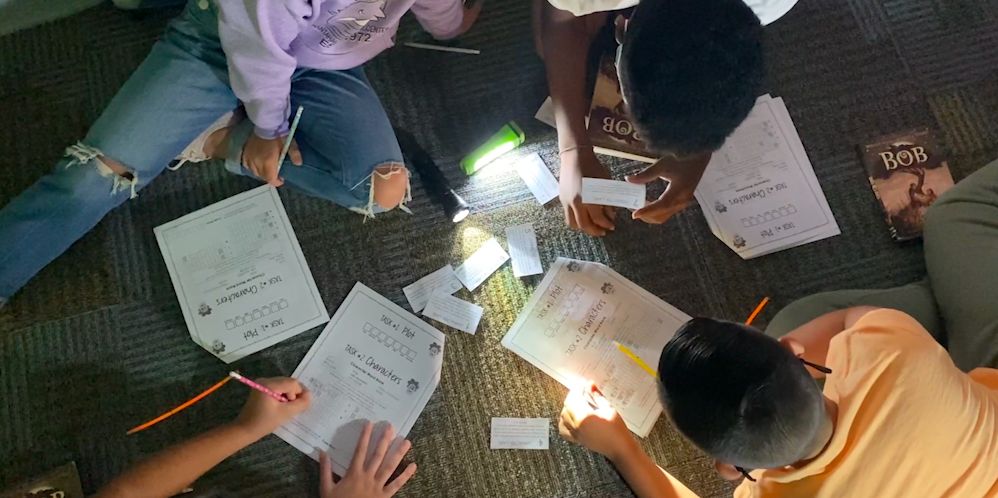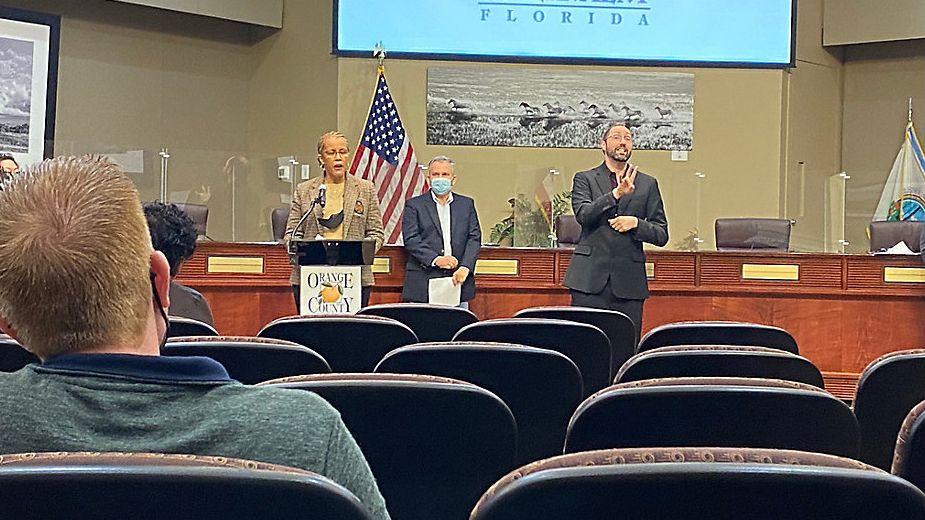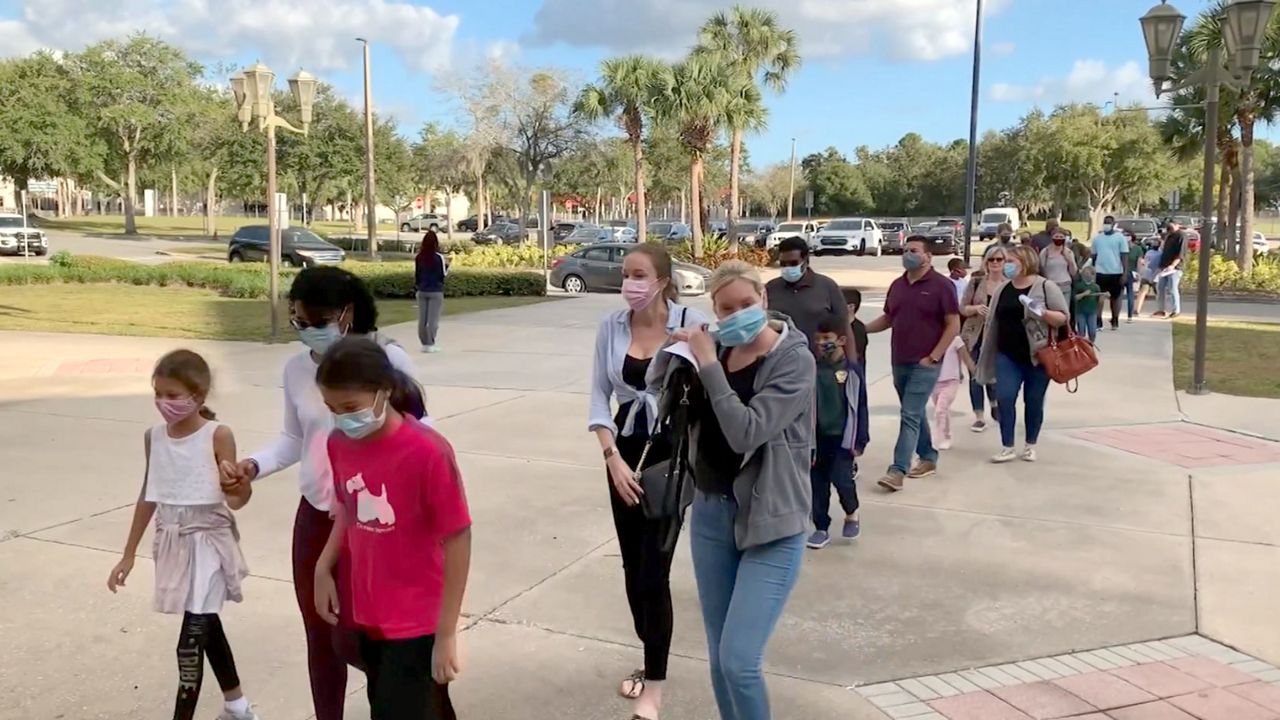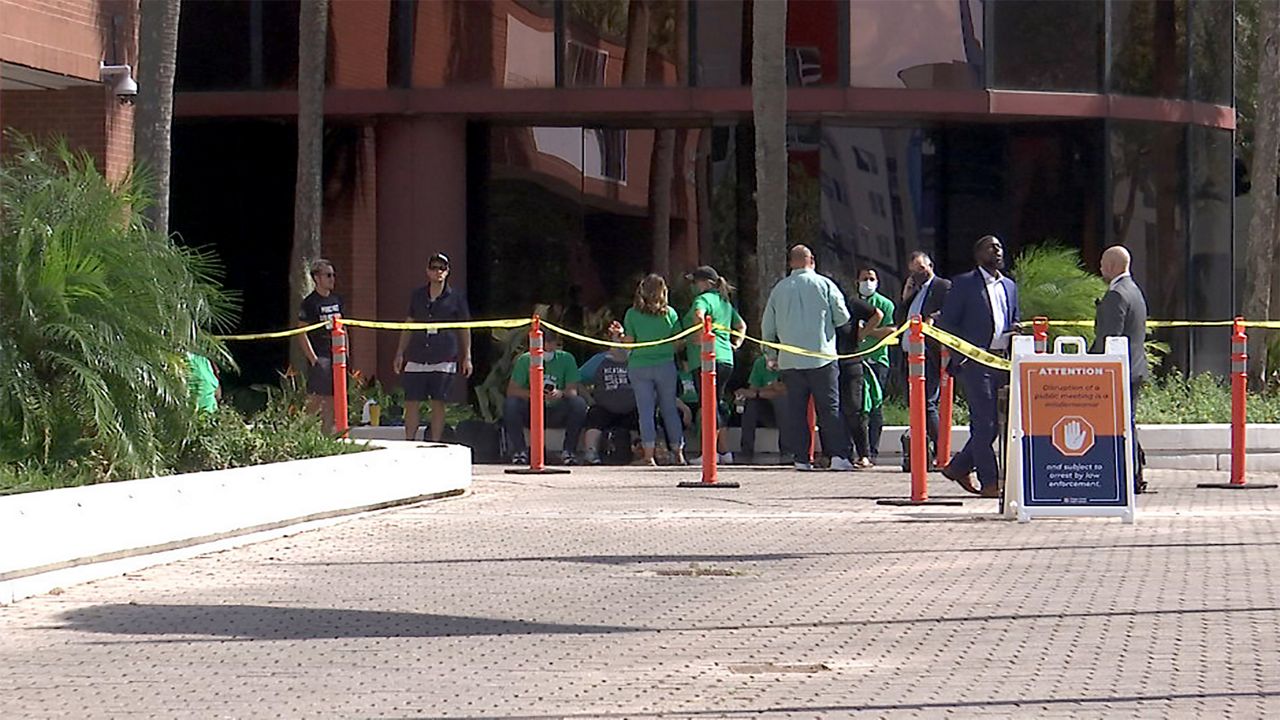ORANGE COUNTY, Fla. — On Monday, anyone age 18 or older will be eligible for a COVID-19 vaccine, but research from Johns Hopkins University shows a hesitancy among college students to get vaccinated.
What You Need To Know
- Starting Monday, Floridians 18 and older will be eligible for a COVID-19 vaccine
- Johns Hopkins University research shows many college students are hesitant to get a vaccine
- Schools like UCF are planning to return to normal in the fall, and cite vaccine availability as important to make that possible
At the University of Central Florida in the fall, students will still need to wear a mask in the classroom and that’s a reason why some students say they don’t want the vaccine at all.
On Thursday, UCF looks more like a school on spring break than a school that’s in session.
Limited class sizes as well as online learning is disappointing for UCF Freshman Natalie Hernandez and her college experience.
“First semester was complete garbage,” UCF Freshman Natalie Hernandez said. “It was awful moving here, knowing absolutely nobody and having COVID was awful.”
In the fall UCF hopes to be back to normal in terms of class sizes. UCF cites the increasing availability of vaccines as being key to the return to face-to-face learning.
“I am personally not going to take it for maybe a year or two,” Hernandez said. “I will wait until people who are older get it, and I can see like how they react to it before I personally take it.”
Dr. Rupali Limaye is an associate scientist at Johns Hopkins University in the school of Public Health. She has been researching why some college students have vaccine hesitancy.
“It seems to be more focused on Liberty, and autonomy over their own body,” Limaye said.
According to data, those ages 18 -25 are split on whether they want a vaccine, Limaye said. But she does have telling data for other groups.
“We are seeing more people that are hesitant that are communities of color,” she said. “So, regardless of how old you are, if you are African American or you identify as hispanic, you are less likely to get the vaccine.”
And in talking to other students across campus, Spectrum News 13 heard the same concerns Limaye is hearing.
“If I am fine right now maybe I don’t need to put this chemical in to my body,” UCF Senior Emmanuel Ramos said.
“I just kind of want to see what everybody else is doing and what my parents are doing with it too,” Freshman Grace Golba said.
The most common answer — regardless of age group — is how recently the COVID-19 vaccines were developed.
“The vaccine is still new,” Hernandez said. “They are testing it out, it can be anything in there, and it can have any effects, nobody knows.”
But science has suggested otherwise.
One interesting note to point out from Limaye is that as more variants of the virus have been discovered, they tend to be in younger people and tend to have more severe outcomes.
She also feels these variants are going to continue to show up primarily in younger people.









